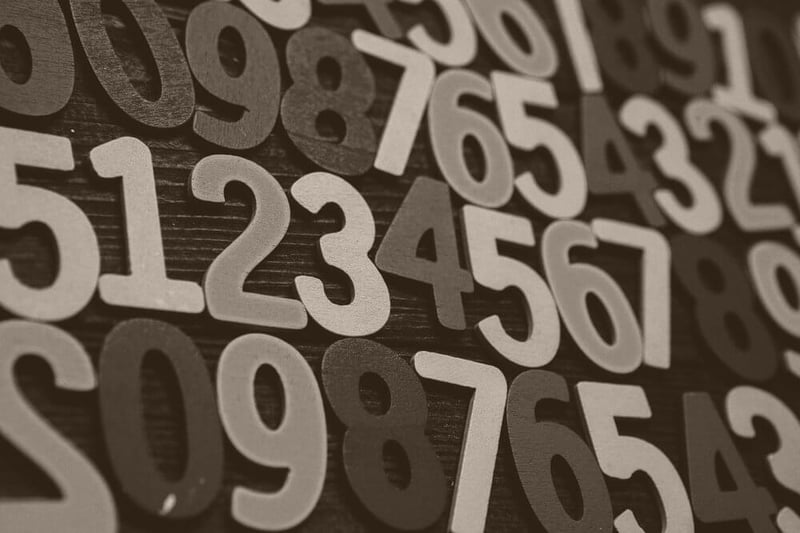What are cardinal numbers?
Cardinal numbers are basically regular ol’ numbers. They simply indicate the number of people, animals, or things.
Eu tenho três irmãosI have three brothers
Ela tem dez pássarosShe has ten birds
Vocês compram vinte laranjasYou buy twenty oranges
They are invariable, except…
The majority of cardinal numbers are invariable, meaning they only have one form. For example, you say três meninos (3 boys) and três meninas (3 girls). There is only one form of três, and most other cardinal numbers.
There are a few important exceptions, however: umone , doistwo , and the centenashundreds starting at 200, do change form depending on the gender of the noun. For example:
- Um copoOne glass → Uma mesaOne table
- Dois carrosTwo cars → Duas casasTwo houses
- Duzentos eurosTwo hundred euros → Duzentas formigasTwo hundred ants
Cem or Cento?
Another variation to note is cem vs. cento, but it’s not related to gender this time.
The word cem100 is used when it stands on its own, when it comes before a noun, and when talking about higher quantities.
cem pássarosone hundred birds
cem mil dólaresone hundred thousand dollars
However, when is followed by a lower number, we use cento.
cento e dezone hundred and ten, 110
cento e vinteone hundred and twenty, 120



Would you consider using the “and” as in “one hundred and twenty “? It is the more literal translation, which stresses the importance of the “and” in Portuguese.
Sure. Thanks!
Getting better
You can just use the same cardinals for anything you count… this is so much easier than Japanese!!
I continue to be delighted with the way you have presented the lessons. It is taking time but definitely improving. Obrigada.
I’ve been searching and searching, but can’t find a simple list of cardinal numbers (ex. 1-100) in this unit or anywhere in the app.🧐
In this Learning Note you can find that list: https://www.practiceportuguese.com/learning-notes/numbers/
So saying ‘without cheese’ sounds exactly the same as saying ‘a hundred cheese’. being vegan must be hard in portugal
In “a hundred cheese”, we’d pluralize ‘cheese’ to ‘queijos’ (keeping it singular in “without cheese”) 🙂 That should help a bit!
How do you differentiate between “a thing” and “one thing”. If we take an example of “a table” and “one table”, aren’t they both “uma mesa”? How do you differentiate these? Thanks for the great app 👍
You don’t, except through context 🙂 It’s probably hardly ever an issue, in practice.
I really appreciate all the small details that you did not forget to explain it for us,
you make my Portuguese learning journey much easier
Mutio Obrigada!
What a great way to learn Portuguese!
How are “três” (3) and “treze” (13) pronounced differently when followed by a word starting with a vowel sound, like “horas”? As in, “Tu chegas nas próximas três/treze horas” or “Eu tenho três/treze irmãos”? I’m having trouble telling them apart orally.
Hah, good question! That’s one of those cases where you might need visual aid (gesturing the number three, if that’s the one), or to slow down your speech and really articulate the last syllable of treze so that we understand that it’s not just a fused ‘três’. If spoken too fast, they will indeed sound pretty much the same 🙂
In the Lesson 4, is “Vou de férias quinze dias” quite correct grammatically? Different sources say it should be “Vou de férias por quinze dias” otherwise it may be ambiguous…
Olá! We can and do say “Vou de férias por quinze dias”, but we also omit the preposition just as often. Both ways are fine and are interpreted in the same way. If we want to say that we’re going 15 days from now, we don’t omit any preposition in that case (we say “Vou de férias em quinze dias”, “…dentro de quinze dias” or “…daqui a quinze dias”), so there’s no actual ambiguity in the end.